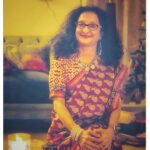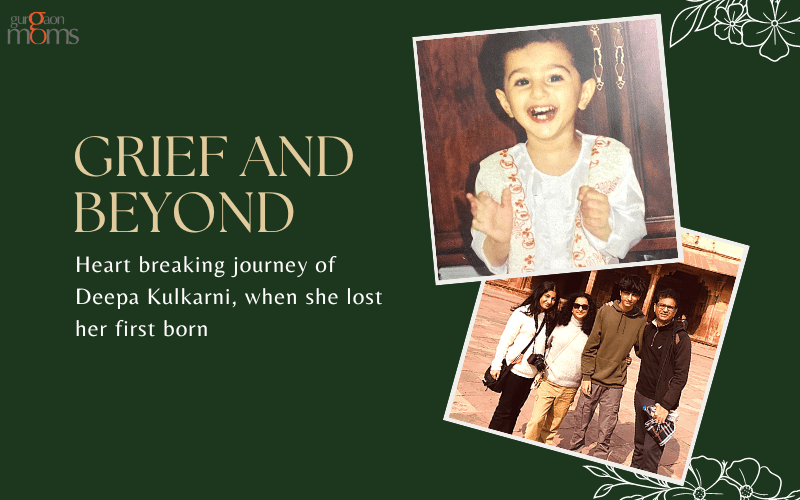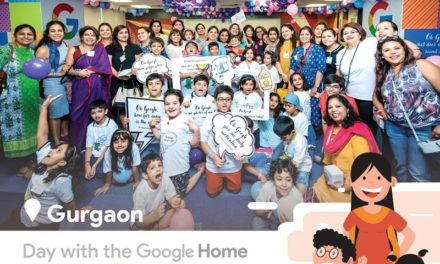Grief became my life long companion on January 12th, 2000 when we lost my son, Pravir, to cancer. He had just been diagnosed as being terminally ill with neuroblastoma. Our only concern then was to make sure his needs were well looked after, and keeping him happy and pain free with the help of palliative care was paramount. Pravir never lost his sense of humour and grit, and bore it all like a saint, and we set aside our sadness with the goal of keeping Pravir as happy and comfortable as we could till he lived. We took him to parks and restaurants. He adapted beautifully to his morphine pump, and was generally smiling and happy to be home, away from hospital.
The months leading up to this were spent in and out of hospital. Five intense chemo rounds , stem cell transplant, hospitalisations and a radiation therapy later, tests revealed that the cancer had never really been suppressed and parts of it would still be lurking in the bone marrow.
Once the cancer relapsed, there wasn’t much we could do, as the cancer was spread all over, and inside impenetrable parts of his brain. Pravir also hated hospitals and wouldn’t eat anything while there, unless it was rasam and rice sent from home. No therapy guaranteed extending his life by more than a month or so. We had to be selfless and it was by far the hardest decision to take. Should a person be put through agony, just to extend his life for a few months or a year? The act of letting go is the hardest for any parent especially when your child’s life is at stake. While it killed us inside to do this, we had to have the best interest of our child in mind. We also believed in what we think is giving a dignity to his life and a dignity to his death, and that meant making his life as pain free and also choosing to remember the happy memories instead of remembering him in pain.
He died at the age of 3, surrounded by his loved ones, at home, amongst people he loved the most. He never once cribbed or complained. Life happened in the form of Pravir’s passing, leaving us with an unwanted companion called grief.
While it was the worst time of our life, it was also a time where we were fortunate enough to be surrounded by family and friends who made sure we were never made to feel alone. They gave us the space as well when we needed, but they made sure they were around us when we needed, be it with their constant phone calls, visits, or just dropping by food and making sure we were taking care of ourselves. Friends and family from all over made us realize that with a support system, life is less complicated to handle.
While we were going through the motions of life, during the time of his illness, death and then the birth of our daughter and son later on, processing grief was not possible as the kids kept us busy. Also, the pain was raw, the loss colossal and it was impossible at that time to distance ourselves from the pain. And the fact that perhaps no one would understand our feelings kept us from sharing our innermost thoughts with others. The fear of weighing others down with our grief kept us silent. While I would talk about my son my husband wouldn’t. Despite being in this together, we were different in the way we dealt with our grief. The irony of grief being a lonely journey despite two people being in it together was profound.
So what exactly is grief? How does one deal with something like this? Grief is not just about the depths of despair that follows a death or a loss of a loved one. Grief manifests itself in many ways. It can be getting irritated at small things, getting panic attacks, as well as trying to fill a void in your life in meaningless pursuits. But most of all grief is about the helplessness and futility of it all, and that feeling of sadness when we know that the one we loved is never coming back, and never again will we get to hug them or hear their voice. Like they say, grief comes in waves, and at times, it creeps up ever so slowly that I have sunk into it without even realizing it.
How does one learn to cope with grief and accept it as a dormant but constant companion? How did I manage to live 23 years without my first born? Have I healed?
Healing completely from loss is not possible. When you lose a child, a part of you dies along with the child. Each day seems like you have an Everest to summit day after day. Getting up and facing each day was excruciating. I ploughed through those days remembering all the good times I had with Pravir. I also learnt from him on how to smile through my pain, and live in the moment. That was the only way I could survive.
What helps during the grieving process is to accept the thoughts that come to mind, and acknowledge them. It is okay to have negative thoughts and it is okay to sometimes begrudge other people their happiness. Accept, acknowledge and then correct these thoughts. Practicing mindfulness helps tremendously. We notice our thoughts, and emotions and learnt to control them. This is what worked for me. Also, being in a support group of peers helped tremendously, as I didn’t realise how much I was holding back until I met a group of moms who have been on the same journey as I have. We have this non-judgmental, safe haven, where we can unabashedly talk about our deepest fears and insecurities. I have also been blessed with the right circle of friends and family who empower me.
While grief can be crippling, it can also be empowering. It empowered me to be empathetic, sense people’s moods, and helped me to reach out to moms like me who may be having a hard time dealing with their emotions. By talking about my grief, I want people to know that they aren’t alone, and I also want others to know that they need not be uncomfortable around grieving people.

What has helped me in these 23 years to navigate my grief is being around the right set of people, volunteering for social causes, and actively talking about my grief. Volunteering gives you a new perspective as you interact with people who are from different backgrounds. It allows us a peak into their lives and helps us create bonds that don’t make us feel isolated. Reading books and being part of a book club helped me in keeping a meaningful social life alive and also helped cope with my emotions.
But what changed in the last year is the talk I did with a YouTube channel on my grief journey. By processing my grief again, and speaking about it on a public platform, I realized how I have managed to distance myself from the pain, and analyze my grief and experience objectively. I allowed myself to be embraced by grief while allowing it to change me into a kinder and better version of myself, and let it empower me in a way only loss can. Grief humbled me, shattered me, yet it allowed me to live life in the moment and made me a stronger person.
 This write-up is by Deepa Kulkarni
This write-up is by Deepa Kulkarni
Deepa is lifelong nomad, who now calls Gurgaon home, and has found ‘herself’ here. Always a bit different, she now celebrates her ‘hatke’ personality.










You have done an amazing job of supporting others that have lost loved ones. That could very well be the purpose of your life. Despite the loss, you continue to be grateful, optimistic, and full of life. God bless!